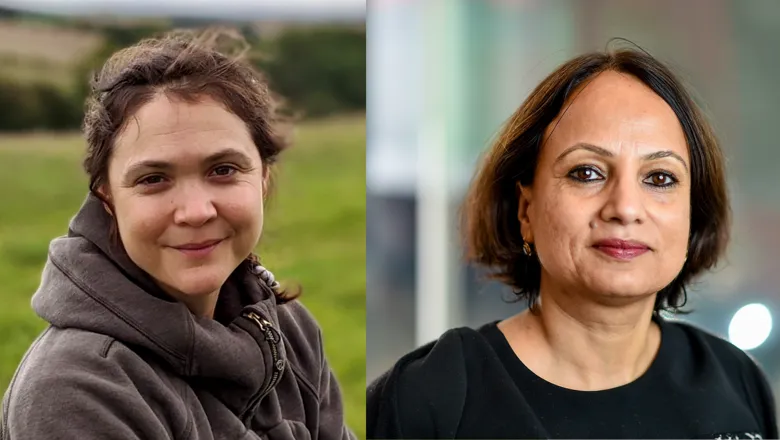I am absolutely thrilled to have the opportunity to spend the coming year at IAS. I want to express my gratitude to the absolutely incredible administrative and research services support I have received that has made taking up this fellowship possible. I am also hugely thankful to the many research collaborators upon whose work this project builds and seeks to extend.
Professor Ann Kelly, Professor of Anthropology & Global Health
11 August 2023
King's academics selected as members of the Institute for Advanced Study in Princeton
Professor Ann Kelly and Dr Kriti Kapila were selected as 2023-24 members of the Institute which is a leading centre for theoretical research in sciences and humanities.

Each year, the Institute for Advanced Study in Princeton, New Jersey, selects new members to reside at the Institute and pursue significant, original research. Professor Ann Kelly, from the Department of Global Health & Social Medicine, and Dr Kriti Kapila, from the King’s India Institute, have been selected among 14 collaborators for the Institute’s 2023-2024 seminar theme – ‘Platform’.
The Institute, established in 1930, is one of the world’s leading research centres that facilitates curiosity-driven research. Each year, the Institute selects and mentors around 200 new members with their projects and has featured prestigious scholars, such as Professor Albert Einstein, within its membership.
Professor Kelly will be working on her project ‘Platforms, bridges, dipsticks and bricks: global health on the make’. It comparatively develops three ‘platform cases’, drawn from extensive engagement with global health research and practice – Ebola vaccines, diagnostics for neglected diseases and mosquito control products. The project will explore how health inequities could be more concretely levelled through the situated processes of product design, manufacturing, regulation, and supply.
Dr Kapila will be working on her project ‘The post-biometrics Indian State’ which is an examination of the new public digital infrastructure and emergent algorithmic citizenship in India, enabled by Aadhaar – the world’s largest biometrics based mandatory identification system.
The project studies the state’s attempt to digitalise different aspects of socio-economic life. It moves the study of the digital state beyond privacy and surveillance concerns, attending to spaces of resistance and protest.
The 2023-24 seminar theme ‘Platforms’ aims to prompt thinking about different forms of platforms within society, from analogue to digital, and activities that are organised from them. Projects will explore ways to account for the expansion, rise, and influence of ‘the platform’ in global society.

